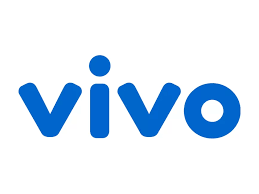
Vivo India Private Limited ("Petitioner") is a company that makes, assembles, and sells mobile phones, parts, and accessories. They have a factory in Greater Noida, Uttar Pradesh.
Issue: Should the period from February 2020 to August 2020 be considered cumulatively for calculating the Eligible ITC for the invoices or debit notes not furnished by the supplier in GSTR 1?
Key Points:
Purchases and Demand: Between February 2020 and August 2020, the Petitioner bought various mobile phone components and related items from different suppliers in India. The Revenue Department ("Respondent") claimed that the Petitioner improperly used excess Input Tax Credit (ITC) amounting to Rs.110,06,90,100.31/- during this period. An order dated April 7, 2021 ("Impugned Order") confirmed this demand and directed the Petitioner to reverse the claimed ITC, add it to the Output Tax liability with interest, and imposed a penalty equal to the excess ITC claimed under Section 74 of the Central Goods and Services Tax Act, 2017 ("CGST Act"). The total demand, including interest, was Rs.235.52 crores.
Legal Challenge: The Petitioner challenged the Impugned Order and the demand before the Hon'ble Allahabad High Court, seeking to cancel the Impugned Order. The Petitioner also pre-deposited Rs.11,00,69,010/-, which is 10% of the disputed GST demand, but contested the entire tax liability. However, the Respondent recovered the entire tax liability amount of Rs.220,13,80,200.69/- from the Petitioner. The Petitioner's main argument was that a computation error for the excess ITC occurred due to reliance on Circular No. 123/42/219-GST dated November 11, 2019 ("Impugned Circular"). Provisions of the Impugned Circular were contrary to Notification No. 30/2020 dated April 3, 2020 ("Notification") and other related notifications, making them unenforceable for determining the eligible ITC claimed.
Refund Application: The Petitioner filed a Civil Miscellaneous Restitution Application No. 10 of 2022, requesting a refund of the entire amount deposited with the Respondent, totaling Rs.220,13,80,200.69/-, plus the pre-deposited amount of Rs.11,00,69,010/-. The Petitioner also claimed interest on the deposited amount.
Held: The Hon'ble Allahabad High Court in the case of Writ Tax No. 433 of 2021 held the following:
GST Regime: The court observed that the GST regime is based on the principle that GST is levied at each stage of value addition, and the assessee can claim ITC on the tax paid to offset the outward tax liability. Section 16 of the CGST Act outlines the conditions for availing ITC. Section 16(2) states that if the recipient fails to pay the supplier the value of the supply with GST within 180 days of the invoice date, the ITC is reversed and added to the recipient's outward tax liability. Section 37 of the CGST Act mandates that every registered person must submit details of outward supplies electronically by the tenth day of each month.
Rule 36(4) Amendments: The court further noted that Notification No. 49/2019 dated October 09, 2019, added sub-rule (4) to Rule 36 of the CGST Rules, allowing a registered person to claim ITC for invoices or debit notes not uploaded by suppliers in GSTR-1, limited to 20% of eligible credit for uploaded invoices or debit notes. The Impugned Circular imposed a condition that ITC calculation for non-furnished invoices or debit notes would be based on supplier invoices or debit notes uploaded under Section 37(1) of the CGST Act, as reflected in auto-populated FORM GSTR 2A on the due date of filing FORM GSTR-1. Rule 36(4) was amended by Notification No. 75/2019 dated December 26, 2019, reducing the ITC claim limit from 20% to 10%. The first Proviso to Rule 36(4) was inserted, stating that conditions in Section 37 of the CGST Act would apply cumulatively for February, March, April, May, June, July, and August 2020, and the return in Form GSTR-3B for September 2020 would include a cumulative adjustment of ITC for the stated period.
Impugned Circular: The court noted that the Impugned Circular, being contrary to statutory provisions and the first proviso of Rule 36(4) of the CGST Rules, cannot be enforced for the limited period of February 2020 to August 2020.
Eligible ITC: The court opined that the condition laid out in Rule 36(4) of the CGST Rules states that the amount of eligible ITC for the period from February 2020 to August 2020, not exceeding 10% of the eligible ITC as per the tax invoice or debit note filed by the supplier in GSTR-1, must be calculated cumulatively.
Recovery Actions: The court further opined that while the Respondent has the authority to recover the amount from the Petitioner during the writ petition's pendency even if the Petitioner has pre-deposited 10% of the disputed tax amount, the Respondent's actions to recover the entire disputed tax amount are unacceptable. The Respondent should have considered any pre-deposited amounts by the Petitioner.
Conclusion: The court held that the Impugned Order is quashed, and the entire amount recovered from the Petitioner by the Respondent must be returned to the Petitioner within six weeks, along with interest at 6% on Rs.11,00,69,010/- (the excess amount recovered) from the date of excess recovery to the date of actual refund. The court granted the Respondent the liberty to recover up to 10% of the interest amount from the erring official of the Respondent. The Writ Petition was allowed.
Topic-M/s. Vivo Mobile India Private v. Union of India
Court-ALLAHABAD HIGH COURT
Date-05/09/2023
Team Taxonation
Comment: